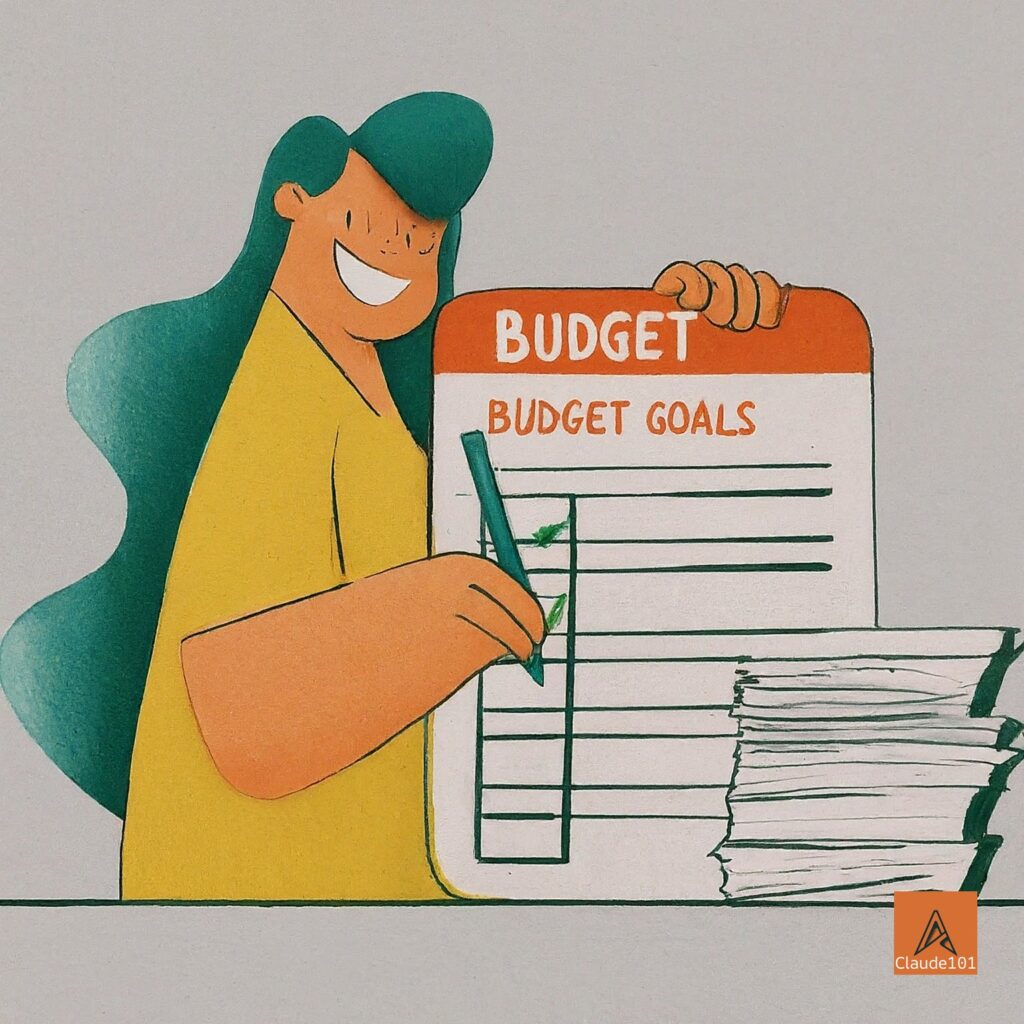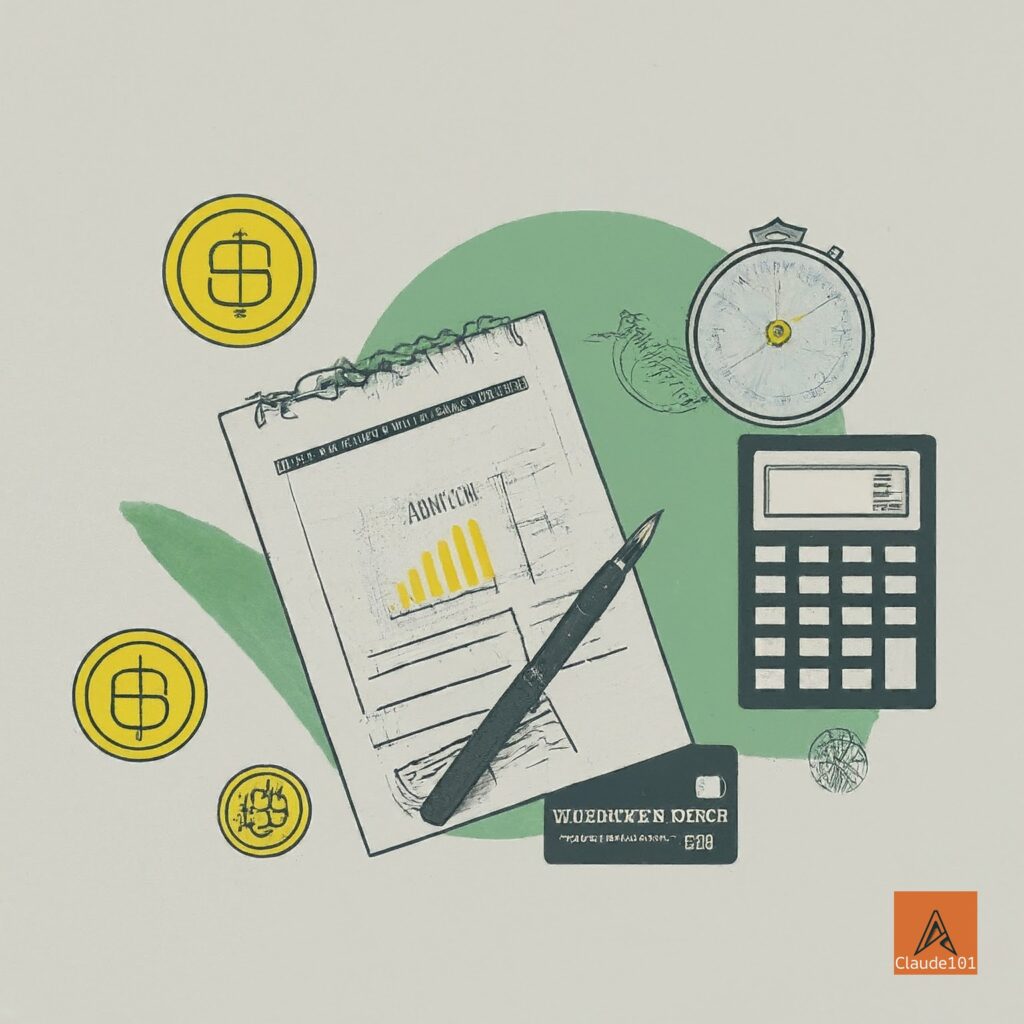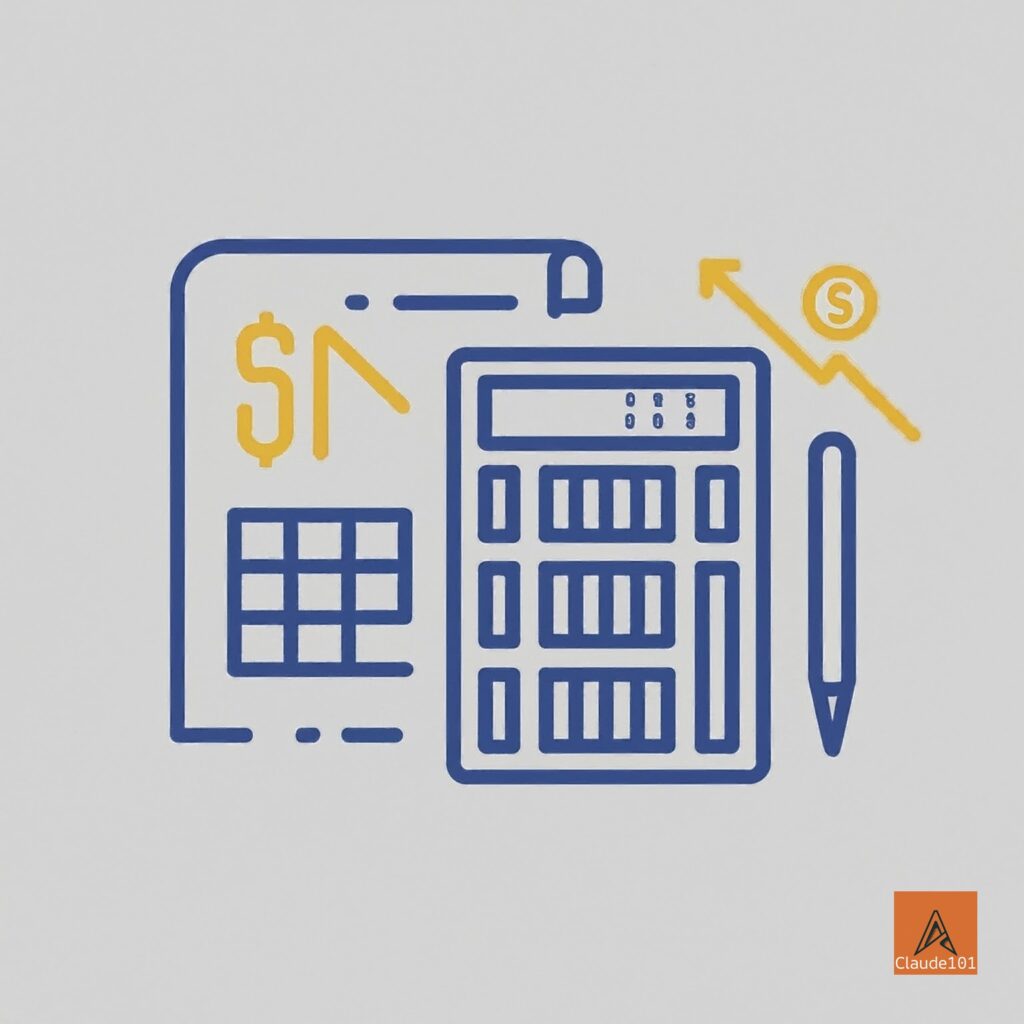What is Budget Planning?
Budget planning is a systematic approach to managing one’s financial resources by forecasting income and expenses over a specific period, typically a month or a year. It involves the process of creating a plan to spend your money, allowing you to determine in advance whether you will have enough funds to do the things you need to do or would like to do. Budget planning is not only a cornerstone of personal financial management but is also essential for businesses of all sizes.
The primary goal of budget planning is to ensure that individuals or organizations live within their means, save money, prepare for emergencies, and avoid debt. It provides a financial framework that guides spending decisions and helps prioritize expenditures. By setting spending limits and tracking actual spending, budget planning makes it possible to identify wasteful expenditures, adapt quickly as financial situations change, and achieve financial goals.
How to Set Your Financial Goals with Claude
Setting well-defined financial goals is the foundation of effective budget planning. Claude can guide you through this process by asking insightful questions and providing personalized recommendations based on your unique circumstances.
Identify Your Financial Priorities
To begin, have an open conversation with Claude about your current financial situation and future aspirations. Claude will ask probing questions to understand your priorities, such as:
- What are your most important financial goals or concerns at the moment?
- Are you focused on building an emergency fund, paying off debt, saving for a major purchase, or planning for retirement?
- How would you prioritize these goals if you had to rank them?

Prompt to use: “I want to set clear financial goals for myself. Can you help me identify my top priorities based on my current situation and future plans?”
Establish SMART Goals
Once your priorities are identified, Claude will guide you in setting specific, measurable, achievable, relevant, and time-bound (SMART) goals. For each goal, Claude will prompt you to provide details such as:
- The specific dollar amount or percentage you want to achieve (e.g., save $50,000 for a down payment)
- A measurable metric to track progress (e.g., increase emergency fund by 20%)
- A realistic timeframe for achieving the goal (e.g., within 3 years)
- How the goal aligns with your overall financial situation and priorities
Prompt to use: “I want to set a SMART goal for [goal description]. Can you help me define the specific target, metrics, timeline, and relevance for this goal?”
Break Down Complex Goals
For larger or more complex goals, Claude can assist you in breaking them down into smaller, actionable steps. This approach makes your goals feel more achievable and helps you stay motivated throughout the process.
Prompt to use: “My goal of [complex goal description] seems overwhelming. Can you help me break it down into smaller, more manageable steps?”
Prioritize and Sequence Goals
With multiple financial goals in mind, Claude can help you prioritize and sequence them based on factors such as urgency, potential impact, and interdependencies. This ensures that you focus your efforts on the most important goals first, while still making progress towards other objectives.
Prompt: “I have several financial goals in mind. Can you help me prioritize and sequence them in a way that makes sense for my situation?”
Align Goals with Values and Lifestyle
Effective financial goals should align with your personal values, lifestyle preferences, and long-term vision. Claude can explore these connections and ensure that your goals are congruent with what truly matters to you.
Prompt: “I want to ensure that my financial goals align with my core values and desired lifestyle. Can you help me evaluate this alignment and make any necessary adjustments?”
Regularly Review and Adjust Goals
Financial goals are not static; they may need to be adjusted as your circumstances or priorities change over time. Claude can help you regularly review your goals and make updates as needed, ensuring that they remain relevant and achievable.
Prompt: “It’s been [time period] since we last reviewed my financial goals. Can you help me reassess if any adjustments are needed based on my current situation?”
Preparing Your Financial Data for Claude
To create an accurate and effective budget plan, Claude needs access to comprehensive and up-to-date financial data. This data serves as the foundation for Claude’s analysis and recommendations, ensuring that your budget plan is tailored to your unique financial situation.
Gather Essential Financial Documents

Begin by gathering the following essential financial documents:
- Pay stubs or income statements (for employed individuals)
- Profit and loss statements (for business owners or self-employed individuals)
- Bank and credit card statements (for all accounts)
- Loan and mortgage documents
- Investment account statements (e.g., 401(k), IRA, brokerage accounts)
- Insurance policies (e.g., health, life, auto, home)
- Utility bills and other recurring expenses
Prompt: “I want to ensure that I have all the necessary financial documents ready for you to analyze. Can you provide me with a checklist of the essential documents I should gather?”
Organize and Categorize Data
Once you have gathered the relevant documents, it’s important to organize and categorize the data in a structured format. This will make it easier for Claude to import and analyze the information accurately.
One effective approach is to create a spreadsheet or use a cloud-based financial management tool, with separate tabs or categories for different types of data, such as:
- Income sources (e.g., salary, business revenue, investments, rental income)
- Expenses (e.g., housing, utilities, transportation, groceries, entertainment)
- Debts (e.g., credit cards, loans, mortgages)
- Assets (e.g., bank accounts, investments, real estate)
- Insurance policies and premiums
Prompt: “I have gathered all my financial documents. Can you provide me with a template or guide on how to organize and categorize this data in a structured format for your analysis?”
Ensure Data Accuracy and Completeness
Before providing the data to Claude, it’s crucial to ensure its accuracy and completeness. Double-check that all relevant information has been included and that there are no errors or inconsistencies in the data.
If you’re unsure about any aspect of your financial data or have questions about how to categorize certain items, don’t hesitate to ask Claude for clarification or guidance.
Prompt: “I have organized my financial data, but I want to ensure that it’s accurate and complete before proceeding. Can you review the data and let me know if there are any gaps or inconsistencies that need to be addressed?”
Automate Data Integration
To streamline the process of providing financial data to Claude, you can explore options for automating data integration. Many financial institutions and apps offer secure data-sharing capabilities, allowing you to connect your accounts directly to Claude.
This approach eliminates the need for manual data entry and ensures that your financial information is always up-to-date, enabling Claude to provide more accurate and timely recommendations.
Prompt: “I want to automate the process of providing you with my financial data. Can you guide me through the steps to securely connect my bank accounts, credit cards, and other financial accounts to your system?”
Maintain Data Privacy and Security
Before providing any financial data, review Claude’s privacy policies and data handling practices to ensure that you’re comfortable with the level of protection offered.
You can use the above suggestions & prompts to prepare your financial data in a comprehensive, organized, and secure manner. This will enable Claude to provide you with accurate and personalized budget planning recommendations based on your unique financial situation.
How to Create a Budget Plan with Claude
Once Claude has access to your comprehensive financial data and understands your goals, it can assist you in creating a detailed and personalized budget plan.
Income Categorization and Analysis
Claude will begin by categorizing and analyzing your income sources, such as:
- Employment income (salary, wages, bonuses)
- Business or self-employment income
- Investment income (dividends, interest, capital gains)
- Rental income
- Government benefits or assistance
- Other sources of income
For each income source, Claude will provide insights into its stability, growth potential, and any associated risks or considerations.
Prompt: “I have provided you with my income data from various sources. Can you categorize and analyze these income streams to help me better understand their nature and potential impact on my budget plan?”
Expense Tracking and Categorization
Next, Claude will analyze your expenses and categorize them into essential and discretionary expenses. Essential expenses are those that are necessary for your basic needs and financial obligations, such as:
- Housing (rent/mortgage, property taxes, insurance)
- Utilities (electricity, water, gas, internet)
- Transportation (car payments, insurance, fuel, maintenance)
- Groceries and household supplies
- Health care (insurance premiums, out-of-pocket costs)
- Minimum debt payments (credit cards, loans)
Discretionary expenses are those that are non-essential but contribute to your lifestyle and personal choices, such as:
- Dining out and entertainment
- Subscriptions and memberships
- Travel and vacations
- Hobbies and recreational activities
- Personal care and grooming
Prompt: “I have provided you with my expense data. Can you categorize these expenses into essential and discretionary categories, and provide insights into areas where I may be able to optimize or reduce costs?”
Goal Allocation and Budgeting
Based on your financial goals and priorities, Claude will recommend allocating a portion of your income towards savings, debt repayment, or investments. This allocation will be tailored to your specific goals and timeline.
For example, if your goal is to save for a down payment on a house within the next 5 years, Claude might suggest allocating a certain percentage of your income towards a dedicated savings account or investment vehicle.
Prompt: “Based on my financial goals of [specific goals], can you recommend an appropriate allocation of my income towards savings, debt repayment, and/or investments?”
Budget Balancing and Cash Flow Management
Claude will compare your income and expenses, taking into account your goal allocations, and suggest adjustments to ensure your budget is balanced and aligned with your financial objectives.
This may involve:
- Reducing discretionary expenses
- Negotiating better rates or terms for recurring expenses
- Exploring ways to increase income (e.g., side hustles, career advancement)
- Adjusting timelines or priorities for certain goals
Claude will also help manage your cash flow by identifying potential shortfalls or surpluses and recommending strategies to smooth out your financial inflows and outflows.
Prompt: “Based on my income, expenses, and goal allocations, can you help me balance my budget and manage my cash flow effectively?”
Scenario Analysis and Stress Testing
To ensure the robustness of your budget plan, Claude can run various scenarios and stress tests to help you understand the potential impact of different financial decisions or life events.
For example, Claude might simulate scenarios such as:
- Job loss or income reduction
- Unexpected medical expenses
- Changes in interest rates or investment returns
- Major purchases or life events (e.g., marriage, children)
By analyzing these scenarios, Claude can help you identify potential risks and develop contingency plans to mitigate their impact on your financial well-being.
Prompt: “I want to ensure that my budget plan is resilient to potential financial shocks or life changes. Can you run some scenario analyses and stress tests to help me understand the potential impacts and develop contingency plans?”
Visualization and Reporting
Throughout the budget planning process, You can have provide clear visualizations and reports to help you understand the rationale behind its recommendations and track your progress over time.
These visualizations may include:
- Income and expense breakdowns (e.g., pie charts, bar graphs)
- Goal progress tracking (e.g., savings or debt repayment timelines)
- Cash flow projections and forecasts
- Budget variance analyses (comparing actual vs. planned spending)
Prompt: “Can you provide me with visual representations and reports to help me better understand and monitor my budget plan?”
How to Monitor and Adjust Your Budget Plan with Claude
A budget plan is not a static document; it needs to be regularly monitored and adjusted to account for changes in your financial situation, goals, or life circumstances. Claude can assist you in this process by providing ongoing analysis, insights, and recommendations to keep your budget plan on track.
Variance Analysis and Alerts
You can have Claude continuously analyze the variance between your actual spending and your budgeted amounts, identifying areas where you may be overspending or underspending.
For significant variances, Claude can provide insights into the potential reasons behind these deviations, such as unexpected expenses, changes in income, or lifestyle adjustments.
Prompt: “I noticed that my spending in the [category] category has been higher than budgeted this month. Can you analyze the reasons behind this variance and provide recommendations on how to address it?”
You can also use services with Claude configured to send you alerts or notifications when you are approaching or exceeding your budget limits in certain categories. This proactive approach can help you course-correct before overspending becomes a significant issue.
Goal Progress Monitoring and Adjustments
Achieving your financial goals is a long-term journey, and Claude can help you stay on track by monitoring your progress and making adjustments as needed.
Claude will track your progress towards your savings, debt repayment, or investment goals, and provide regular updates and reminders to keep you motivated and accountable.
If your circumstances or priorities change, Claude can recommend adjustments to your goal timelines, target amounts, or allocation strategies to ensure that your goals remain relevant and achievable.
Prompt: “It’s been six months since we set my goal of [specific goal]. Can you go through the provided records and give an update on my progress and let me know if any adjustments are needed based on my current situation?”
Budget Recalibration and Optimization
As your life circumstances evolve, your budget plan may need to be recalibrated to reflect these changes. Claude can assist you in this process by analyzing your updated financial data and making recommendations for optimizing your budget.
This may involve:
- Adjusting income and expense categories
- Reallocating funds to align with new priorities
- Exploring opportunities for cost savings or income generation
- Revising goal timelines or targets
Prompt: “My financial situation has changed recently due to [specific life event or circumstance]. Can you help me recalibrate my budget plan to account for these changes and ensure it remains effective?”
Scenario Planning and Stress Testing
In addition to monitoring your current budget plan, Claude can help you prepare for potential future scenarios by running simulations and stress tests.
These scenarios might include:
- Job or income changes
- Major life events (e.g., marriage, children, retirement)
- Economic shifts (e.g., inflation, interest rate changes)
- Unexpected expenses or emergencies
By analyzing the potential impact of these scenarios on your budget, Claude can help you develop contingency plans and make proactive adjustments to mitigate risks and protect your financial well-being.
Prompt: “I’m considering [potential future scenario]. Can you run a simulation to understand how this might impact my budget plan and provide recommendations on how to prepare for this scenario?”
Personalized Financial Coaching
Throughout the monitoring and adjustment process, Claude can serve as a personalized financial coach, providing guidance, accountability, and support to help you stay on track with your budget plan.
Claude can offer personalized tips and strategies based on your unique circumstances, such as:
- Identifying and overcoming financial blind spots or behavioral biases
- Developing healthy financial habits and routines
- Navigating complex financial decisions or life events
- Providing motivation and encouragement during challenging times
Prompt: “I’ve been struggling to stick to my budget plan lately, and I could use some coaching and motivation. Can you provide personalized guidance and strategies to help me get back on track?”
With ongoing monitoring, analysis, and adjustment capabilities, you can ensure that your budget plan remains a living, dynamic document that adapts to your evolving needs and circumstances. The above proactive approach helps you stay in control of your finances and achieve your long-term financial goals with confidence and resilience.
How to Identify Areas of Budget Improvement with Claude
In addition to creating and monitoring your budget plan, Claude can help you identify areas where you can potentially optimize your financial situation and achieve greater efficiency and savings. This process involves a comprehensive analysis of your income, expenses, debts, and overall financial habits.
Expense Optimization Analysis
One of the primary areas where Claude can provide valuable insights is expense optimization. Claude will analyze your spending patterns and identify opportunities for cost savings or reductions in various expense categories.
This may involve:
- Negotiating better rates or terms for recurring expenses (e.g., cable, internet, insurance)
- Identifying and eliminating unnecessary or redundant subscriptions or memberships
- Exploring more cost-effective alternatives for certain expenses (e.g., transportation, housing)
- Implementing energy-saving measures to reduce utility costs
- Optimizing tax strategies and deductions
Prompt: “I want to identify areas where I can potentially reduce my expenses without significantly impacting my lifestyle. Can you analyze my spending patterns and provide recommendations for expense optimization?”
Income Maximization Strategies
While reducing expenses is important, increasing your income can also have a significant impact on your financial well-being.

Claude can explore various strategies for maximizing your income potential, such as:
- Identifying opportunities for career advancement or salary negotiations
- Exploring side hustles, freelance work, or entrepreneurial ventures
- Optimizing investment strategies and asset allocation
- Leveraging passive income streams (e.g., rental properties, affiliate marketing)
- Identifying and taking advantage of tax credits or deductions
Prompt: “In addition to optimizing my expenses, I’m interested in exploring ways to increase my income. Can you provide recommendations and strategies for maximizing my earning potential?”
Debt Management and Restructuring
If you have outstanding debts, Claude can analyze different repayment strategies and recommend the most effective approach based on your financial situation. This may involve:
- Consolidating high-interest debts into a single, lower-interest payment
- Exploring debt refinancing options or balance transfer offers
- Implementing a debt snowball or debt avalanche repayment strategy
- Negotiating with creditors for more favorable terms or settlements
- Identifying opportunities to accelerate debt repayment through additional income or expense reductions
Prompt: “I’m struggling with managing my debt load. Can you analyze my current debt situation and provide recommendations for an effective debt management and repayment strategy?”
Financial Habit Analysis and Coaching
Beyond the numbers, Claude can also provide insights into your financial habits and behaviors, identifying areas for improvement and offering personalized coaching and guidance.
This may include:
- Identifying and addressing financial blind spots or cognitive biases
- Developing healthy financial routines and habits (e.g., budgeting, saving, investing)
- Providing accountability and motivation to stay on track with your financial goals
- Offering education and resources to improve financial literacy
- Helping you navigate complex financial decisions or life events
Prompt: “I’m interested in understanding my financial habits and behaviors better. Can you analyze my spending patterns and provide personalized coaching on areas where I can improve my financial decision-making?”
Comprehensive Financial Plan Optimization
By combining all of these analyses and recommendations, Claude can help you optimize your comprehensive financial plan, ensuring that all aspects of your financial life are working in harmony to achieve your goals.
This may involve:
- Adjusting your budget plan to reflect optimized income, expenses, and debt management strategies
- Revising your financial goals or timelines based on the identified opportunities
- Developing a long-term financial roadmap that accounts for various life stages and scenarios
- Providing ongoing monitoring and adjustment to ensure your plan remains effective and relevant
Prompt: “Based on the analyses and recommendations you’ve provided, can you help me optimize my overall financial plan to ensure I’m on the most efficient path to achieving my long-term goals?”
Dos and Don’ts of Using Claude for Budget Planning
To make the most of Claude’s capabilities for budget planning, keep these dos and don’ts in mind:
Dos:
- Be honest and transparent about your financial situation and goals.
- Provide accurate and up-to-date financial data for analysis.
- Engage in regular check-ins and updates with Claude.
- Be open to Claude’s suggestions and recommendations.
- Use Claude’s insights to make informed financial decisions.
Don’ts:
- Don’t expect Claude to make financial decisions for you; it’s an advisory tool.
- Don’t provide sensitive information like passwords or full account numbers.
- Don’t rely solely on Claude; consult with human financial professionals for complex situations.
- Don’t ignore Claude’s recommendations without careful consideration.
- Don’t set unrealistic financial goals that may discourage you.
What are the differences between using Claude and Other Budget Planning Apps?
There are numerous budget planning apps and tools available in the market, but using Claude offers several unique advantages that set it apart from traditional solutions.

Personalized and Contextual Analysis
Claude can understand the nuances of your financial circumstances, lifestyle choices, and future aspirations, and provide recommendations that are specifically tailored to your needs, rather than a one-size-fits-all approach.
Conversational and Intuitive Interaction
With Claude, you can communicate using natural language, making the budgeting process more intuitive and conversational. Instead of navigating through complex menus or spreadsheets, you can simply ask Claude questions or provide instructions in a conversational manner, and receive clear and actionable responses.
Continuous Learning and Adaptation
As an AI system, Claude has the ability to continuously learn and adapt to your changing financial circumstances, preferences, and behaviors. Unlike static budget planning apps that require manual updates or configuration changes, Claude can dynamically adjust its recommendations and strategies based on your evolving needs and real-time data.
Advanced Scenario Analysis and Forecasting
Claude’s analytical capabilities allow for in-depth scenario analysis and forecasting, enabling you to explore the potential impacts of different financial decisions, life events, or economic conditions on your budget plan.
By running simulations and stress tests, Claude can help you identify potential risks, develop contingency plans, and make informed decisions to mitigate financial uncertainties and protect your long-term financial well-being.
Financial Education and Coaching
Beyond budget planning, Claude can serve as a financial education and coaching resource, providing guidance, accountability, and support to help you develop healthy financial habits, improve your financial literacy, and navigate complex financial decisions or life events.
Claude’s personalized coaching approach can help you identify and address financial blind spots, cognitive biases, and behavioral patterns that may be hindering your financial progress, empowering you to make more informed and effective financial decisions.
Scalability and Customization
As an AI-powered solution, Claude can be easily scaled and customized to meet the evolving needs of individuals, families, or even businesses. Unlike traditional budget planning apps with limited flexibility, Claude can adapt to various use cases, integrations, and customization requirements, and offer a tailored and efficient solution for your specific needs.
